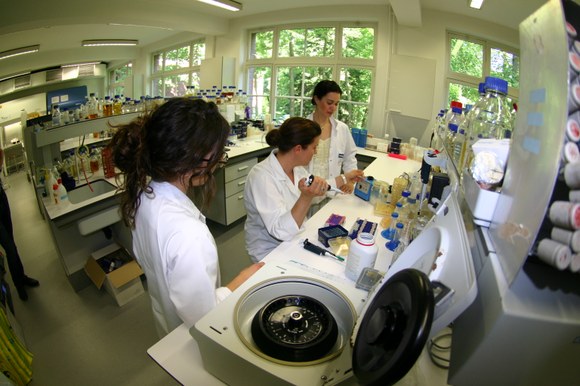The authorities of the university of Leuven are to investigate claims of falsification of research in about ten papers published by Catherine Verfaillie, considered a world authority in the field of stem cell research.
According to a report in De Tijd (paywall), university rector Luc Sels is to call together the Committee on Scientific Integrity following a number of complaints against Prof. Verfaillie.
The complaint against Verfaillie concerns some of the images used in the papers to illustrate her research. It is alleged that some of the images do not meet the high scientific standard for research papers, having been copied and pasted from elsewhere or manipulated with Photoshop. The papers in question range in date from 1999 to 2018.
The accusation of falsification comes from Elisabeth Bik, a Dutch molecular biologist who has otherwise made a name for uncovering dubious images used in scientific papers. She published her doubts on the Pubpeer blog, and also runs the blog Science Integrity Digest, where the claims against Verfaillie currently dominate the front page.
Stem cells are undifferentiated cells found in the embryo as well as in certain tissues in the adult body, including blood, fat and bone marrow. Under lab conditions, they can be made to transform into other cells, which can then be used in the treatment of a variety of conditions, such as cancer, diabetes and heart disease. Bone marrow transplants for leukaemia is probably one of the best-known examples of a form of stem cell therapy.
The Verfaillie papers in question date back to a time when she was director of the Stem Cell Institute at the University of Minnesota’s medical school, when accusations were made against members of her research team of falsifying data in a ground-breaking paper which aimed to show for the first time that stem cells could be extracted from adult body tissue. Verfaillie left Minnesota in 2006 to take over at Leuven and continue her research, following similar accusations against her and her team of falsified imagery in published papers. That led to a number of papers being amended or withdrawn from publication.
If the university’s integrity committee finds there is a case to answer, the matter will then be passed to another committee made up of internal and external experts to look at the matter more closely. In the meantime, Rector Sels stressed that there will be no rush to judgement.
“I want to stress that we continue to have every trust in the researchers concerned, as long as the outcome of the procedure remains unknown,” he told De Tijd. “Above all, this is about the scientific accuracy of the articles, not about nailing individuals to the cross. The name of Catherine Verfaillie is now being brought forward prominently, but several authors worked on the papers. Even if mistakes are shown, it remains to be seen who exactly is responsible.”
Alan Hope
The Brussels Times

